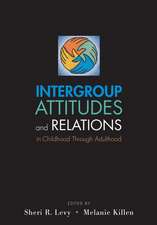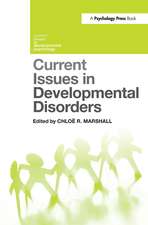Writing: A Mosaic of New Perspectives
Editat de Elena L. Grigorenko, Elisa Mambrino, David D. Preissen Limba Engleză Hardback – 20 ian 2012
Preț: 1129.74 lei
Preț vechi: 1377.73 lei
-18% Nou
Puncte Express: 1695
Preț estimativ în valută:
216.17€ • 225.70$ • 178.91£
216.17€ • 225.70$ • 178.91£
Carte tipărită la comandă
Livrare economică 04-18 aprilie
Preluare comenzi: 021 569.72.76
Specificații
ISBN-13: 9781848728127
ISBN-10: 1848728123
Pagini: 505
Dimensiuni: 178 x 254 x 30 mm
Greutate: 1.04 kg
Ediția:New.
Editura: Taylor & Francis
Colecția Psychology Press
Locul publicării:Oxford, United Kingdom
ISBN-10: 1848728123
Pagini: 505
Dimensiuni: 178 x 254 x 30 mm
Greutate: 1.04 kg
Ediția:New.
Editura: Taylor & Francis
Colecția Psychology Press
Locul publicării:Oxford, United Kingdom
Cuprins
D.D. Preiss, E. Mambrino, E.L. Grigorenko, Preface. Part 1. The Origins of Writing. D. Schmandt-Besserat, Tokens as Precursors of Writing. A. Lock, M. Gers, The Cultural Evolution of Written Language and Its Effects: A Darwinian Process from Prehistory to The Modern Day. D. Olson, Language, Literacy and Mind: The Literacy Hypothesis. Part 2. Writing and Human Development. J. Zins, S.R. Hooper, The Inter-Relationship of Child Development and Written Language Development. V.W. Berninger, L. Chanqouy, What Writing Is and How It Changes Across Early and Middle Childhood Development: A Multi-Disciplinary Perspective. T.L. Richards, V.W. Berninger, M. Fayol, The Writing Brain of Normal Child Writers and Children with Writing Disabilities: Generating Ideas and Transcribing Them through the Orthographic Loop. Part 3. Working Memory and Expertise in Writing. R.T. Kellogg, A.P. Whiteford, The Development of Writing Expertise. T. Olive, Writing and Working Memory: A Summary of Theories and Findings. M. Fayol, J.N. Foulin, S. Maggio, B. Lété, Towards a Dynamic Approach of How Children and Adults Manage Text Production. D.L. Coker, Jr., Descriptive Writing. Part 4. The Teaching of Writing. M. Chuy, M. Scardamalia, C. Bereiter, Development of Writing through Knowledge Building: Theoretical and Empirical Bases. J. Randi, T. Newman, L. Jarvin, Creative Writing as Assessment of Content. C.R. Fallahi, Improving the Writing Skills of College Students. J.S. Hedgcock, Second Language Writing Processes Among Adolescent and Adult Learners. Part 5. Creativity and Emotions in Writing. J. Piirto, Themes in the Lives of Creative Writers. J.C. Kaufman, J.D. Sexton, A.E. White, The Creative Writer and Mental Health: The Importance of Domains and Style. M. Tan, J. Randi, B. Barbot, C. Levenson, L. Friedlaender, E.L. Grigorenko, Seeing, Connecting, Writing: Developing Creativity and Narrative Writing in Children. P. Smagorinsky, E.A. Daigle, The Role of Affect in Students’ Writing for School. Part 6. Disorder of Written Language: Diagnostic Criteria, Prevalence, and Biological Bases. A. Ardila, Neuropsychology of Writing. E. Mambrino, Written Expression’s Neuropsychological Nexus (WENN): A Working Clinical Theory. J. Reich, E.L. Grigorenko, The Effect of Language and Orthography On Writing Disabilities and the Necessity for Cross-Linguistic Research. M. Leung, S. Law. R. Fung, H. Lui, B.S. Weekes, A Model of Writing Chinese Characters: Data From Acquired Dysgraphia and Writing Development. Part 7. The Diagnosis and Assessment of Writing as a Skill and a Competence. J. Lee, L. Stankov, Large-Scale Writing Assessment: New Approaches Adopted In the National Assessment of Educational Progress (NAEP). J. Manzi, P. Flotts, D.D. Preiss, Design of a College-Level Test of Written Communication: Theoretical and Methodological Challenges. Part 8. Testimonials. R. Couch, Burning Down the House: Ethics and Reception in Poetry Translation. J. Felstiner, Bringing Redemption to the World: A Translation Sampler. A. Jeftanovic, A Narrator’s Testimony Between Reading, Writing, and Displacements. G.J. Rose, The Story Behind My Being A Writer. R.J. Sternberg, Twelve Hundred Publications Later: Reflections on a Career of Writing in Psychology.
Recenzii
"This volume about writing is different from any book on writing I am aware about in three ways. First, most books on writing are somewhat narrowly focused on writing, as if it is a phenomenon that exists in a vacuum. The chapters in this book embed writing in the larger context of development, and in doing so, enhance the importance of the aspects of writing that are considered. Second, the breadth of the topics covered is remarkable. Third, and most important, this if the first book about writing I have had a hard time putting down. This is a must have book for writing researchers and will be useful in the classroom." - Richard Wagner, The Florida State University, USA
Descriere
This book captures the diversity and richness of writing as it relates to different forms of abilities, skills, competencies, and expertise. It is an invaluable resource for researchers interested in language and cognition, and also educators and clinicians.








